THEATRE
‘Die vegetariër’ is an exquisite and deeply discomforting piece of theatre
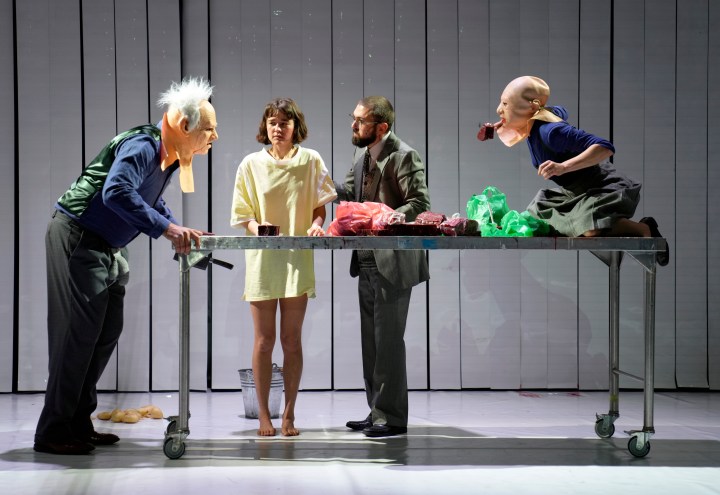
In what may be the most affecting, brutal theatrical work you’ll ever see, director Jaco Bouwer and writer Willem Anker have brought to the stage Korean author Han Kang’s bleakly devastating three-part novel about a woman who first eschews meat, then food, as she imagines herself becoming a tree.
One look at the stage and the first pangs of panic set in: a sterile space enclosed on three sides by strips of vinyl, the light bright white, the atmosphere sober, a metal table with wheels — like a gurney — in the centre of a floor covered by a sheet of plastic. It might be an abattoir or a butcher’s backroom, a playroom for S&M kink, or the setting for some form of non-consensual violence.
Whatever it is, it’s somewhere sinister, you can almost taste the foreboding as your eyes are drawn into this empty space which might be somewhere real or imaginary. Or a place you’ve been in a terrible dream.
You are not about to witness simply a play, beginning, middle, end, applause. You will be provoked, probed and emotionally prodded, your eyes violated, your imagination sent screaming into the hereafter.
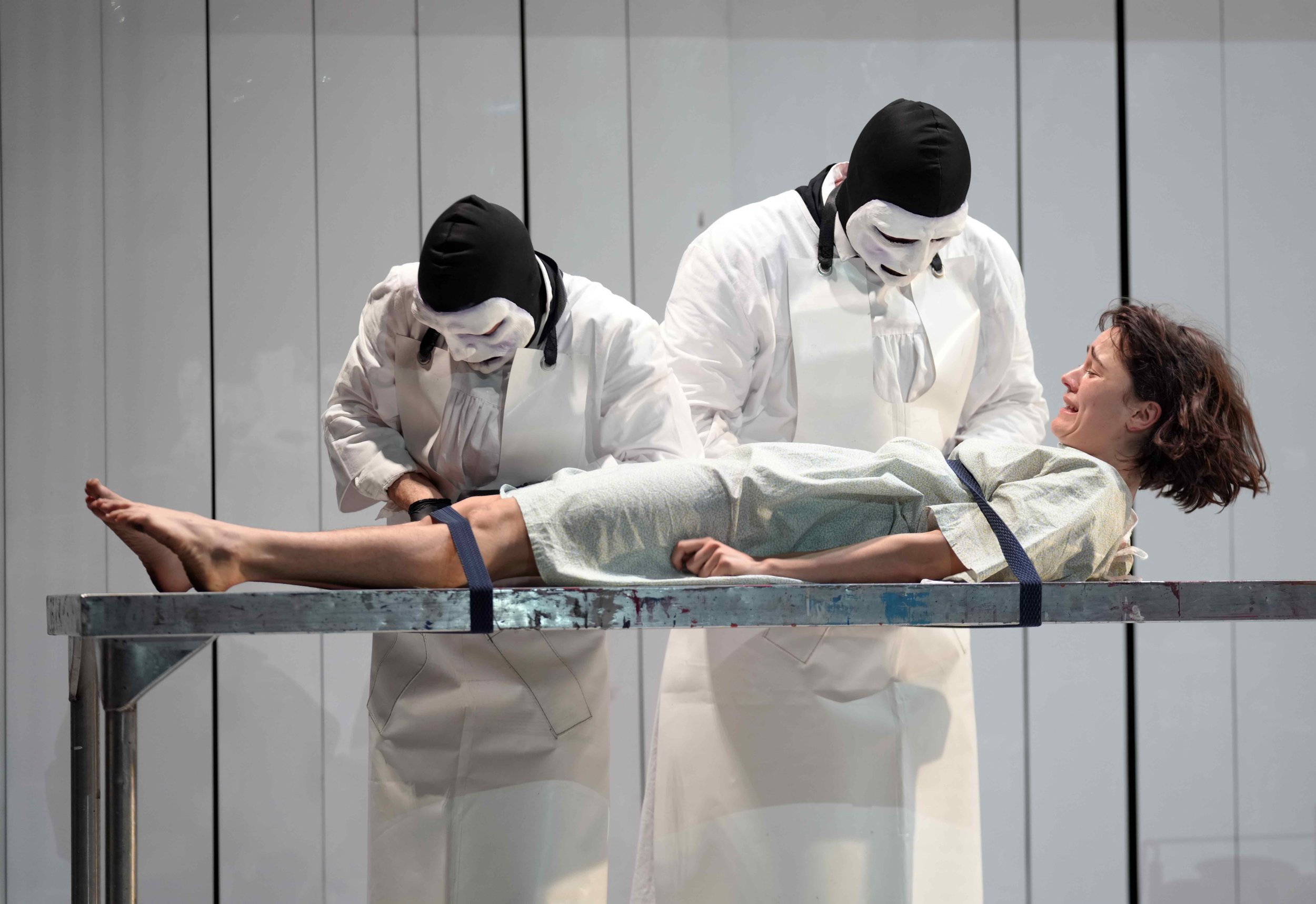
Melissa Myburgh restrained for ‘her own good’ in ‘Die vegetariër’. (Photo: Nardus Engelbrecht)
There will be bags of meat, stage blood, first in droplets and later in puddles on that clean white floor; grisly descriptions of violence against animals, creatures being slaughtered in a series of nightmares. There will be talk of vegetarianism, a husband taking off his clothes, putting them on again, and then once again getting undressed.
There will be rape.
And a variety of scenes in which the woman who has announced that she will no longer eat meat is instructed on how to behave. She will be forced, violated, made to submit, told how to act, and what to eat. She will have tubes forced into her, cameras will examine her interior.

Wilhelm van der Walt as the husband, Melissa-Myburgh as the vegetarian and Tinarie van Wyk Loots as her mother in ‘Die vegetariër’. (Photo: Nardus Engelbrecht)
At one point, she will be hung up by her wrists in an image reminiscent of an animal carcass dangling from a meat hook; the same scene will evoke images of medieval torture and sexual violence.
There will be harrowing scenes in a mental institution, fingers down throats, gagging, vomiting, starvation, a chunk of liver being pummelled with a meat cleaver. And this vegetarian woman will be commanded to eat animal flesh.
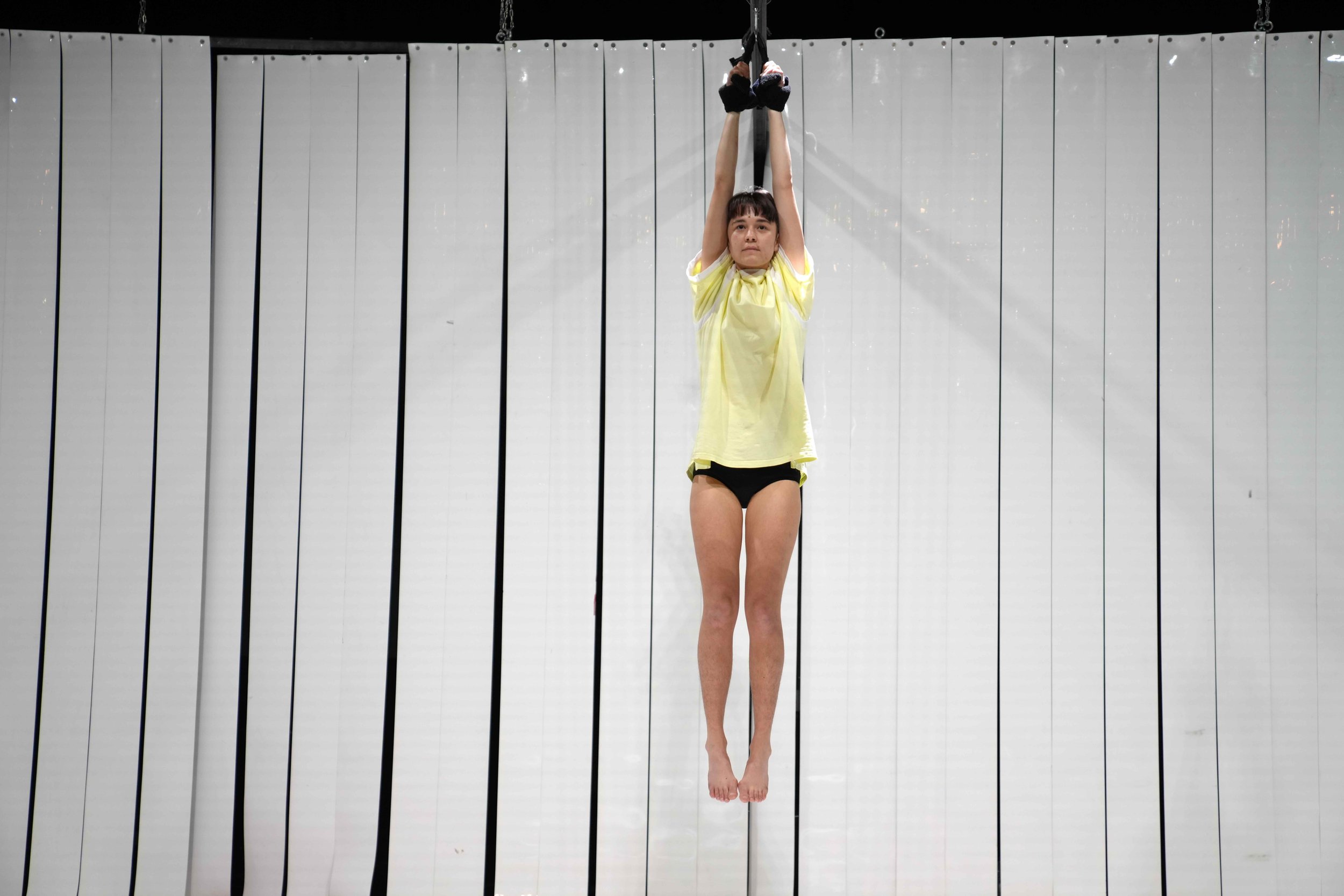
Die vegetariër. (Photo: Nardus Engelbrecht)
These scenes will hit a nerve, unsettle, and probably upset you. They might shock you enough to make you flinch or look away. You will feel their effects and you will not escape unscathed. Die vegetariër is brutal theatre, laying bare something of the inexplicable madness of what it means to be human.
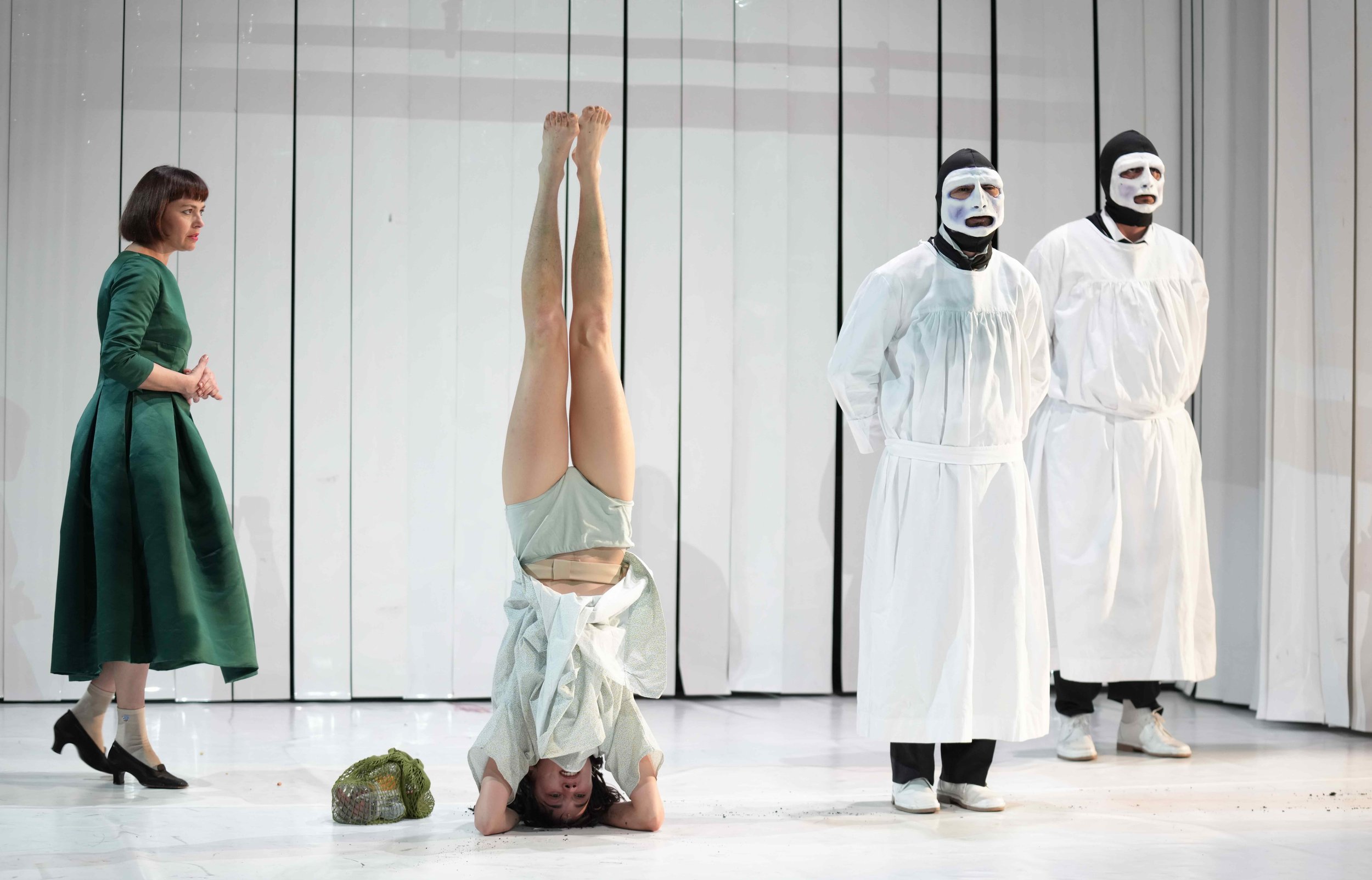
A pair of doctors stand by the sisters in ‘Die vegetariër’. (Photo: Nardus Engelbrecht)
Jaco Bouwer and Willem Anker, respectively the director and playwright responsible, have created something stirringly visceral. It is a play that is almost two hours long and that never for a moment relinquishes its grip on the audience; it is relentless, gut-wrenching, an assault. It is theatre as a kind of performative ritual, as artistically bonkers as it is brave and brilliant. By the time it ends, you feel as though the electromagnetic frequency of your entire being has been altered.
Anker’s text is an adaptation of the 2016 Man Booker International Prize-winning English translation of Korean author Han Kang’s three-part novella, The Vegetarian. Nothing can adequately prepare you for the wild and harrowing ride that emanates from her vision.
Han has said she used The Vegetarian as a way of exploring the circumstances under which a human might become completely innocent; it takes as a starting point the notion that eating is itself an act of violence.
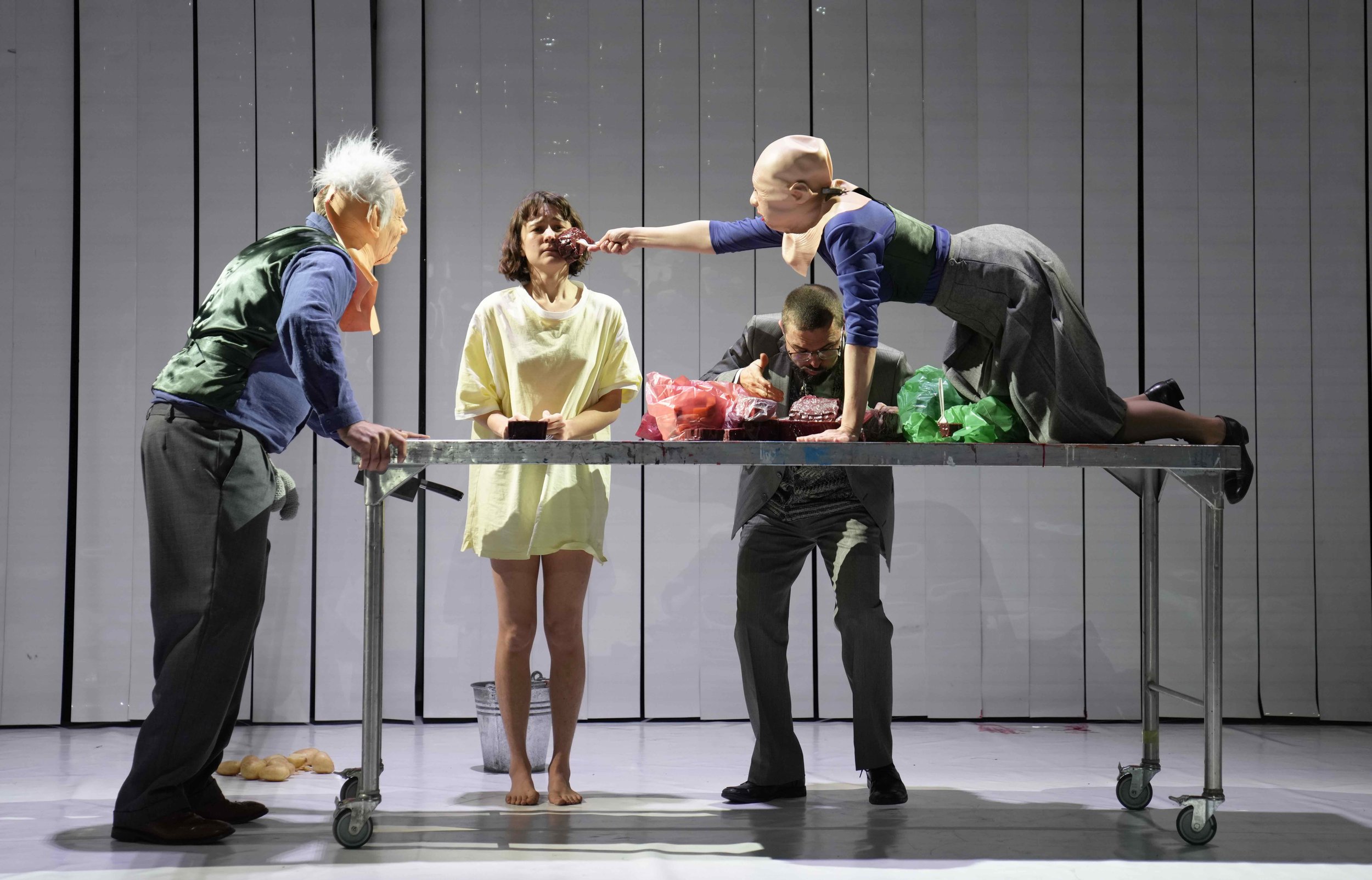
Melissa Myburgh as the vegetarian having meat forced on her in ‘Die vegetariër’. (Photo: Nardus Engelbrecht)
Although she first began thinking about the nature of violence when she witnessed a pro-democracy demonstration turn bloody while she was a little girl, the shoots of her novel eventually grew out of a line by the poet Yi Sang. “I believe that humans should be plants,” he wrote.
That in itself is radical stuff, but if this alone sounds like a slippery descent into madness or depravity, you have no idea what sort of a crazy shift in perspective this story will demand of you.
It is not simply about going vegan.

Die vegetariër. (Photo: Nardus Engelbrecht)
Although it begins with a woman — a depressed housewife, described by her husband as “ordinary” — announcing that she will no longer be eating meat, that is only the beginning of a surreal journey. Soon enough, her decision to starve becomes more alarmingly rooted in her belief that she is turning into a tree, existing through photosynthesis.
Most of the acts of violation that ensue are conducted against women, and there’s no avoiding the fact that this play deals with the multiplicity of ways in which female bodies and minds are violated: how women are suppressed, made to conform, abused, misused and accosted, treated like children, forced to grovel, or compelled to undertake acts of self-loathing and self-harm, corralled into certain social roles.
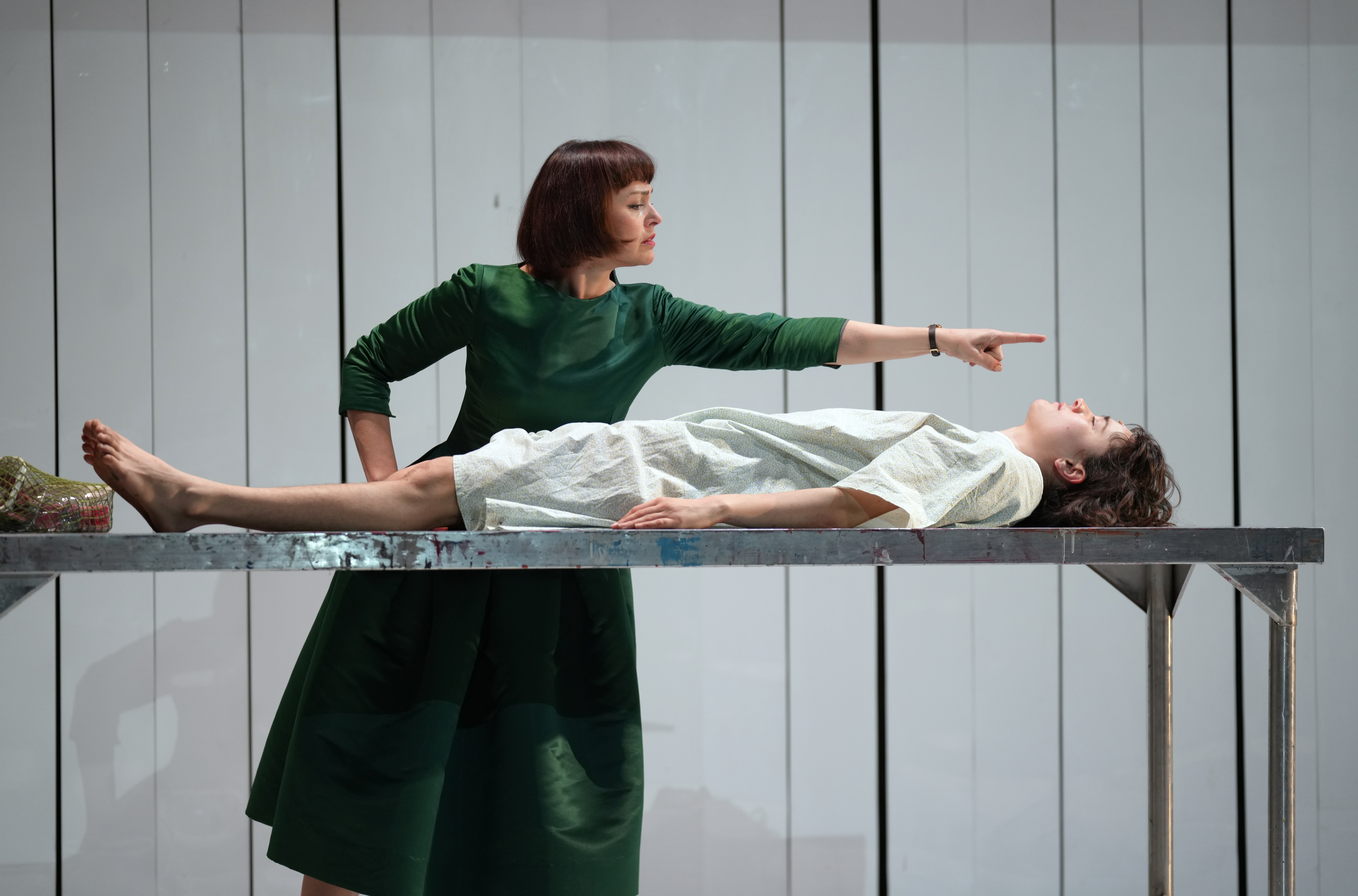
Tinarie van Wyk Loots and Melissa Myburgh in ‘Die vegetariër’. (Photo: Nardus Engelbrecht)
Taking the brunt of this is Melissa Myburgh, the young actress playing the titular vegetarian. Her astonishing performance is not only spirited and brave, but also detailed and complex, taking us on a mind-bending emotional trajectory that is difficult precisely because of her character’s refusal to be bound by the conventions of normal society.
To Myburgh’s great credit, by the end of it all, it is her character’s striving for personal agency that is her crowning achievement, as is her capacity to give us insight into someone whose frame of reference seems so uncoupled from reality.
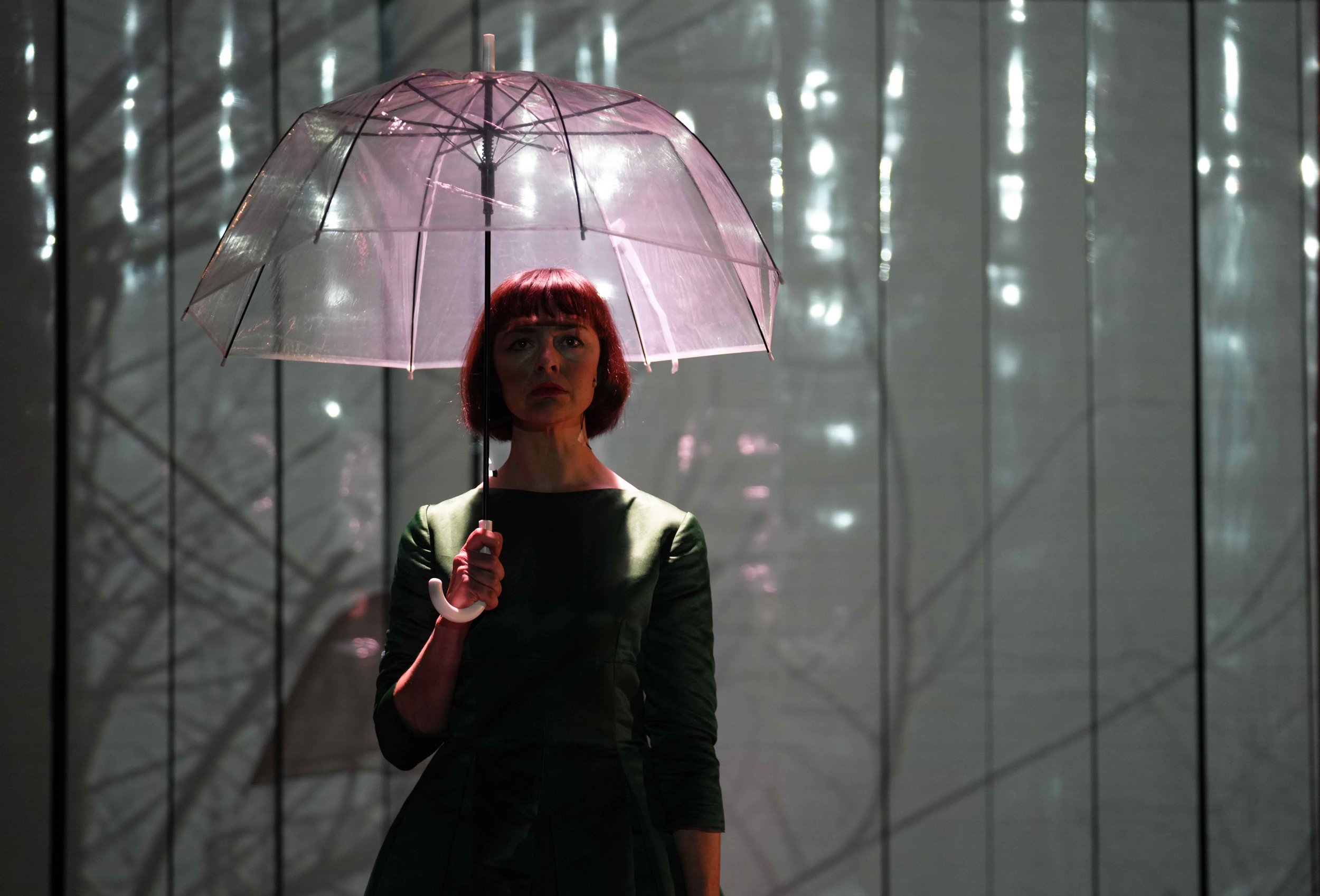
Tinarie van Wyk Loots in ‘Die vegetariër’. (Photo: Nardus Engelbrecht)
Similarly excellent is Tinarie van Wyk Loots, who plays her sister, and whose personal anguish escalates as she witnesses her sibling disappear whilst coming to the realisation that fading from existence in this manner is her own choice to make.
To suggest, however, that the play is exclusively about the violation of female bodies is to miss what is being said about the power of resistance, about an individual’s capacity to refuse the violence of the world by opting not to participate in it. After all, one of the most provocative questions raised by the novel (and at the heart of the play’s most tender moments) concerns our complicated relationship with death: it asks us to consider why not living is deemed a “bad thing”.
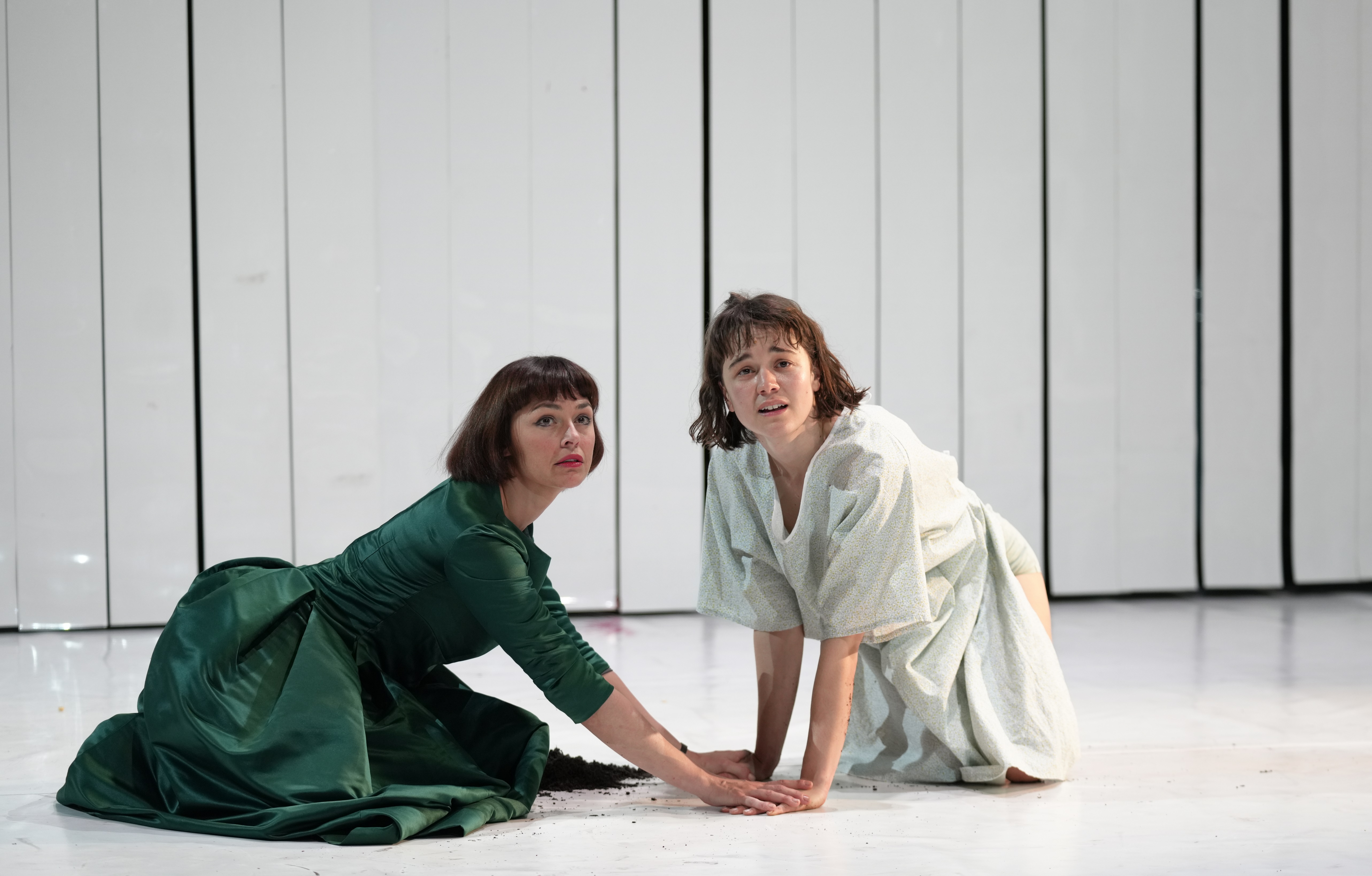
Tinarie van Wyk Loots and Melissa Myburgh play sisters in ‘Die vegetariër’. (Photo: Nardus Engelbrecht)
It is questions like this that stay with you long after the play has ended, gripped and stripped bare as you are by the emotional bludgeoning of Bouwer’s exhilarating directorial vision.
As director, he has pulled off something beyond the realm of the rational mind. He has created a kind of theatre that compels us to engage with the vastness of human experience in ways that force us well outside our comfort zone. He has made the effort to have us squirm uncomfortably in our seats as we digest what is nothing less than raw, riveting theatre. Something that is transcendental, and that expresses the unsayable with deliberate and considerable force. DM
Die vegetariër was adapted for the stage by Willem Anker from the English translation of Han Kang’s Korean novel, The Vegetarian. It is directed by Jaco Bouwer who also designed the set and it is staged with excellent English surtitles. It plays at The Baxter’s Flipside Theatre until 15 March and will be performed at KKNK in Oudtshoorn later this month.


















Comments - Please login in order to comment.